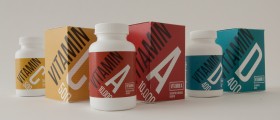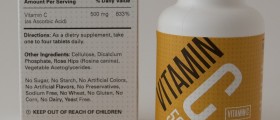
Vitamin K is actually an umbrella term for a group of vitamins which are medically referred to as napthoquinones.
Sources of Vitamins K1-K4
Vitamin K1 can be found in certain species of plants. Vitamin K2 is commonly produced in the intestines of the human body. Vitamin K3, vitamin K4 and several others are also produced in synthetic forms. In most cases, these synthetic versions of vitamin K are manufactured as medicaments.
History of Vitamin K
Vitamin K was first discovered by a scientist known by the name of Henrik Dam. The first name given to the vitamin was koagulationsvitamin, so the letter K still remains.
Benefits of Vitamin K
Vitamin K is one of the most important types of nutrients required by the human body. It is an integral part of the normal process of blood clotting. When the skin gets cut, the clotting occurs so that excess blood flow can be avoided. Vitamin K is actually responsible for triggering the conversion of prothrombin to thrombin, which leads to the coagulation of blood. Vitamin K is also a very important factor in the proper formation of the bones in the human body.
Daily Dosage of Vitamin K
One needs to ingest plenty of vitamin K in order to avoid vitamin K deficiency. Vitamin K should not be consumed in excessive amounts because it is a fat soluble vitamin which gets stored in the fat deposits in the human body. All fat soluble vitamins can be stored in the body, rather easily, which is not the case with water soluble vitamins. Excessive amounts of vitamin K in the human body may lead to thickening of the blood, and ultimately strokes and heart attacks. It is recommended to ingest 120 micrograms of vitamin K per day, but that should not be a big problem, because there are plenty of food items which are jam packed with vitamin K.
Foods High in Vitamin K
The best sources of vitamin K include basil, thyme, coriander, liver, yogurt, fish oils, milk, plums, oregano, grapes, kiwis, parsley, blueberries, soya beans, cabbage, spinach, cauliflower, Brussels sprouts, kale, marjoram, alfalfa, collards, spinach, celery flakes, mustard greens, sea kelp, chard, beet greens and turnip greens.
Signs of Vitamin K Deficiency
Significantly low or significantly low levels of vitamin K inside the human body can both be associated with certain severe medical conditions. Vitamin K deficiency may lead to improper clotting of blood and various other problems related to bleeding. Deficiency may also trigger certain bone related medical problems.

















Your thoughts on this
Loading...